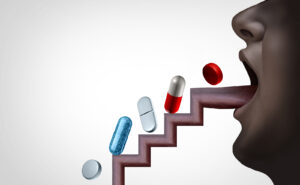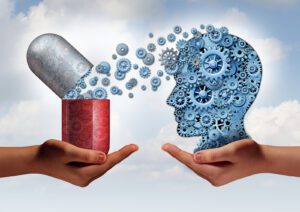
Women and Drugs: A Physiological Look at a Growing Crisis
Women and drugs—this phrase represents more than a public health issue; it reflects a deeply complex interplay of biology, psychology, and social dynamics. While drug
Zydone is a prescription painkiller containing a combination of hydrocodone, an opioid, and acetaminophen. Like other opioid-based medications, Zydone can lead to dependence and addiction if misused. This blog will explore everything you need to know about Zydone detox, including methods, duration, and why professional assistance is crucial for a safe recovery.
Zydone contains hydrocodone, a potent opioid that can induce significant alterations in brain neurochemistry. With prolonged use, the brain’s natural opioid receptors become less responsive to endogenous neurotransmitters, leading to opioid dependence. This dependence results in the brain requiring hydrocodone to maintain normal physiological functions, including pain regulation and mood stabilization.
During detox, the body begins the process of recalibrating these neurochemical pathways, a critical step in eliminating physical dependence. However, without professional detox management, the body’s sudden withdrawal from hydrocodone can trigger a range of severe symptoms, including dysregulation of the autonomic nervous system, extreme gastrointestinal distress, and cardiovascular instability. These physiological stressors often lead to a high risk of relapse, as the brain seeks to alleviate withdrawal discomfort by returning to drug use.
Zydone detox is, therefore, essential not only to eliminate the physical dependence but also to prevent dangerous withdrawal symptoms. A medically supervised detox can provide the necessary support to ensure that the body’s neurochemical balance is restored safely, minimizing the risks associated with abrupt opioid cessation.
Speak Confidentially
with an opiate detox treatment expert.
The withdrawal symptoms associated with Zydone, like those of other opioids such as Vicodin or Percocet, arise due to the brain’s dependence on hydrocodone to maintain normal neurochemical function. When Zydone use is abruptly stopped or significantly reduced, the opioid receptors in the brain and body, which have adapted to the drug’s presence, begin to react, leading to a series of uncomfortable and potentially dangerous withdrawal symptoms. These symptoms can range in intensity based on factors such as the duration of use, the dosage, and the individual’s overall health.
Physical Symptoms:
Psychological Symptoms:
These withdrawal symptoms typically begin within 6 to 12 hours after the last dose, peak within 48 to 72 hours, and can last for several days to weeks, depending on the individual. The severity and duration of symptoms are influenced by the degree of physical dependence, making medically supervised detox crucial for managing these physiological responses safely and effectively.
Zydone detox is more complex than other opioid detoxes due to the presence of acetaminophen alongside hydrocodone. While hydrocodone creates opioid dependence, acetaminophen poses a risk of liver damage, especially with prolonged or high-dose use. During Zydone detox, the liver’s ability to process acetaminophen may already be compromised, requiring close monitoring of liver function in addition to managing typical opioid withdrawal symptoms.
This dual concern—managing withdrawal and potential liver toxicity—makes professional detox essential. Medical supervision ensures that both opioid withdrawal and any acetaminophen-induced liver issues are addressed, offering a safer detox process compared to other opioid-only treatments.
Yes, medically assisted detox is highly recommended for Zydone dependence due to the complexity of opioid withdrawal and the added risk of liver damage from acetaminophen. Professional detox ensures safe management of both withdrawal symptoms and potential liver complications.
With medical supervision, patients receive individualized care to manage the physiological challenges of detox, significantly improving safety and comfort.
Detoxing from Zydone at home is strongly discouraged due to the risks involved. Opioid withdrawal can trigger severe autonomic dysregulation (e.g., high blood pressure, rapid heart rate), along with intense physical and psychological symptoms such as vomiting, diarrhea, anxiety, and cravings. Without medical supervision, these symptoms can lead to serious complications, dehydration, or relapse.
At-home detox lacks the professional care needed to safely manage withdrawal and monitor for potential liver damage caused by acetaminophen. For these reasons, medically supervised detox is the safest option.
At the Waismann Method, we offer a Zydone rapid detox that is designed to safely and effectively help individuals overcome Zydone dependence. Unlike traditional detox methods, which can take days or even weeks of painful withdrawal, rapid detox under sedation allows patients to go through the detox process while comfortably sedated in a full-service accredited hospital.
Our highly experienced medical team, led by Dr. Michael H. Lowenstein, ensures that every patient receives a personalized detox protocol tailored to their specific health needs. The Waismann Method is widely recognized for its unmatched level of safety and success, providing patients with a controlled, medically supervised environment where withdrawal symptoms are minimized.
Answer: Zydone is a prescription medication used to treat moderate to severe pain, combining hydrocodone (an opioid) and acetaminophen.
Answer: Yes, Zydone contains hydrocodone, which is highly addictive and can lead to dependence with prolonged use.
Answer:Zydone can typically be detected in the body for up to 72 hours, depending on factors such as dosage, metabolism, and duration of use.
Answer:Zydone withdrawal symptoms include nausea, vomiting, sweating, muscle aches, anxiety, depression, and insomnia.
Answer: The safest method is under the care of experienced healthcare professionals in a medically supervised environment, such as rapid detox under sedation.
Answer: Detoxing at home is not recommended due to the risk of severe withdrawal symptoms and complications, such as dehydration and relapse.
Answer: The cost varies depending on the facility, method, and duration of detox, with medically supervised and rapid detox programs generally being more expensive but safer.
Zydone detox is a complex and challenging process that requires professional support for the best results. Whether through medically assisted detox or rapid detox under sedation, the key to success is ensuring you’re in a safe and controlled environment. If you or a loved one is struggling with Zydone dependence, seek help from an accredited detox center that specializes in opioid addiction.
1. Understanding Opioid Withdrawal
2. Prescription Opioids DrugFacts
3. Opioid-induced hyperalgesia:
4. Cognitive Impairment in Opioid Use Disorders
5. Acetaminophen-induced Liver Damage:
Contact us and learn more about the best treatment options available for you!
For over 25 years, Waismann Method has been the leading choice for patients seeking a safer, faster path to overcoming opioid dependence, including Zydone addiction. If you are ready to take the next step towards recovery, Waismann Method offers the expertise and care you need for a successful detox.
What's New at Waismann Method®

Women and drugs—this phrase represents more than a public health issue; it reflects a deeply complex interplay of biology, psychology, and social dynamics. While drug

Opioids are among the most powerful pain-relieving medications available, prescribed for everything from post-surgical pain to chronic conditions. Yet, while their effects on the brain

Healing Beyond Abstinence Overcoming drug addiction is not just about stopping use—it’s about transforming the brain, thoughts, and emotional responses that drove the addiction in
Get Newsletter Updates from Waismann Method®
"*" indicates required fields
DISCLAIMER: The text presented on this page is not a substitute for professional medical advice. It is for your information only and may not represent your true individual medical situation. Do not hesitate to consult your healthcare provider if you have any questions or concerns. Do not use this information to diagnose or treat a health problem or disease without consulting a qualified healthcare professional. Be advised that Opiates.com articles are derived from various sources and may not reflect your own country’s regulations.